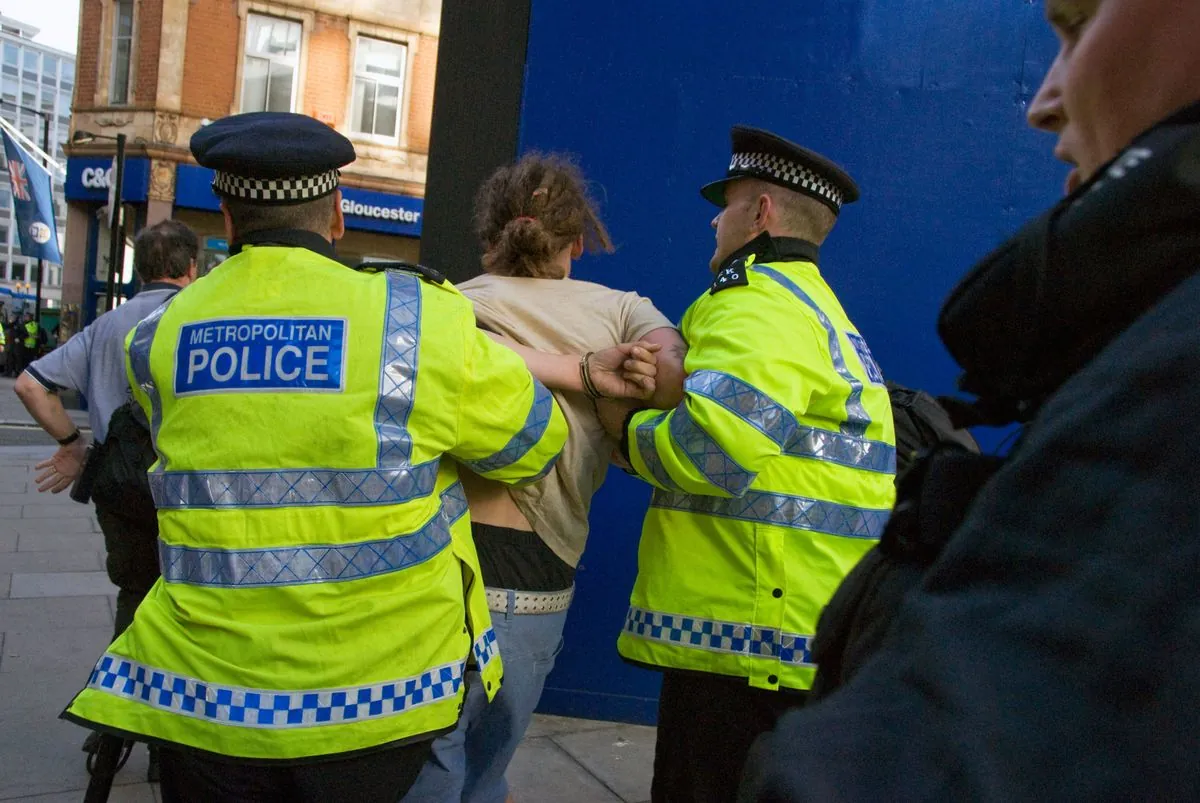Recent data analysis reveals a significant decline in police arrests across the UK, despite a record number of officers on the force. Over the past decade, arrests have dropped by 50%, from 1.4 million to 668,979 in 2023. This translates to a decrease from 9.6 arrests per officer annually to just 4.5.
The Metropolitan Police, Britain's largest force, reported the lowest rate at 2.8 arrests per officer. This decline occurs despite police numbers reaching an all-time high of over 147,000, surpassing the previous peak set under the last Labour government in 2010.
The reduction in arrests mirrors a sharp decline in charging rates. The proportion of offences resulting in charges has more than halved, falling from 15.5% in 2015 to below 6% currently. Criminal justice experts attribute this trend to several factors:
- Increased use of out-of-court punishments
- Shift towards voluntary attendance at police interviews
- Rise in complex crimes like sexual offences and fraud
Dame Vera Baird, former victims' commissioner, suggests the decline may reflect a loss of confidence in the criminal justice system. She points to victim withdrawals and officer frustration with court delays as contributing factors.
"The fact that the decline extends across the country makes me feel it is a failure borne of desperation with the criminal justice system."
The data reveals significant variations across police forces. Cleveland reported 7.9 arrests per officer, while Lancashire saw the largest drop from 11.7 to 3.3.
Rory Geoghegan, a former Downing Street adviser on crime, attributes the decline to changes in rules introduced under the coalition government. These changes favored voluntary questioning over arrests, prioritizing human rights concerns.
The shift coincides with a substantial increase in sexual offences and fraud cases, rising from 4.3 million in 2009/10 to 6.7 million in 2023/24. These crimes typically require more time-intensive investigations.
Rick Muir, director of the Police Foundation think tank, notes that the changing composition of reported crime affects arrest rates. He also highlights the increased use of diversion schemes for young and first-time offenders, aimed at preventing them from entering a life of crime.
The number of young people entering the criminal justice system has significantly decreased, falling from 30,000 to 8,400 over a decade. Simultaneously, the use of community resolutions, which don't require arrests, has increased from 124,000 to 145,000.
Yvette Cooper, the Home Secretary, criticized the current government for the decline in arrests and low crime-solving rates. She outlined Labour's plans to increase neighborhood officers by 13,000 and set ambitious targets to reduce knife crime and violence against women and girls.
As the debate continues, the challenge remains to balance effective law enforcement with evolving crime patterns and community-focused policing strategies.
